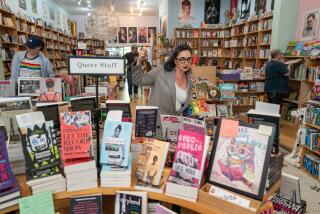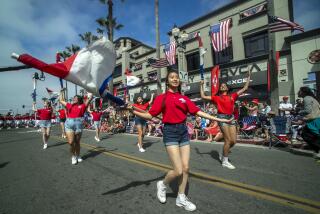Library Use of Hughes Poem
The debate (“Battle Lines--Use of Hughes Poem on Gay History Poster Ignites Furor,” Metro, June 13) over the Los Angeles Public Library’s removal of Langston Hughes’ work from its Lesbian and Gay History Month poster and bibliography illustrates the depth of homophobia and heterosexism in our society. When people believe that calling an African-American writer gay is a slur and demonstrates racism, we can only see this as homophobic. Clearly, those who see a slur see homosexuality as something negative.
When people report that there is no historical evidence detailing a person’s homosexuality, and they conclude that person must be asexual, we ponder the heterosexist assumption. It’s ironic that many urge gays and lesbians to stay in the closet and not to flaunt their sexual orientation, yet years later say they can’t find any evidence for homosexuality in historical records.
When society makes it difficult for gays and lesbians to be themselves, you cannot expect to find discussions of their homosexuality in documents left behind. To assume that absence is proof of asexuality or a non-active heterosexual life ignores the reasons for the omission. We’re not saying that the absence of a historical record of one’s sexual life necessarily means that someone was gay or lesbian. But we are saying that ignoring the possibility of a homosexual orientation demonstrates homophobic and heterosexist thinking.
Unfortunately, some of the people at our public library are doing just that kind of thinking.
PETER M. NARDI
Co-President
Gay & Lesbian Alliance Against
Defamation/Los Angeles
More to Read
The biggest entertainment stories
Get our big stories about Hollywood, film, television, music, arts, culture and more right in your inbox as soon as they publish.
You may occasionally receive promotional content from the Los Angeles Times.










